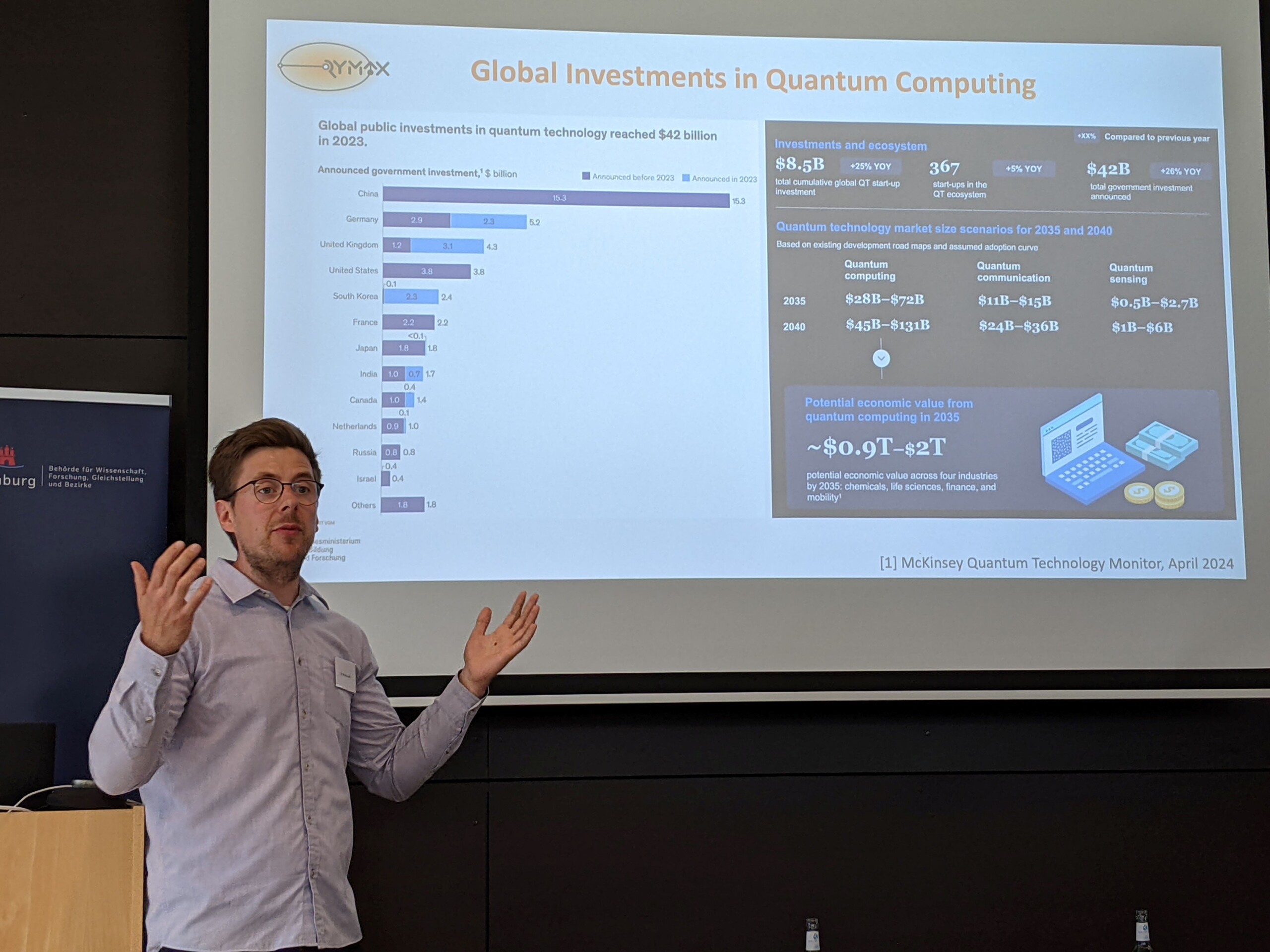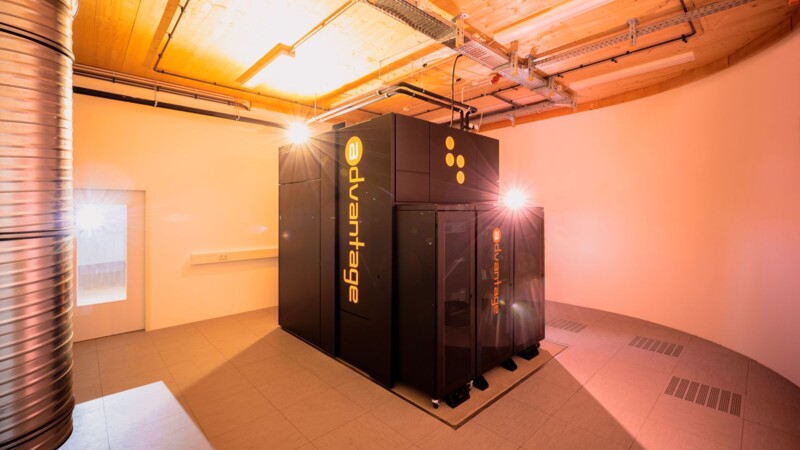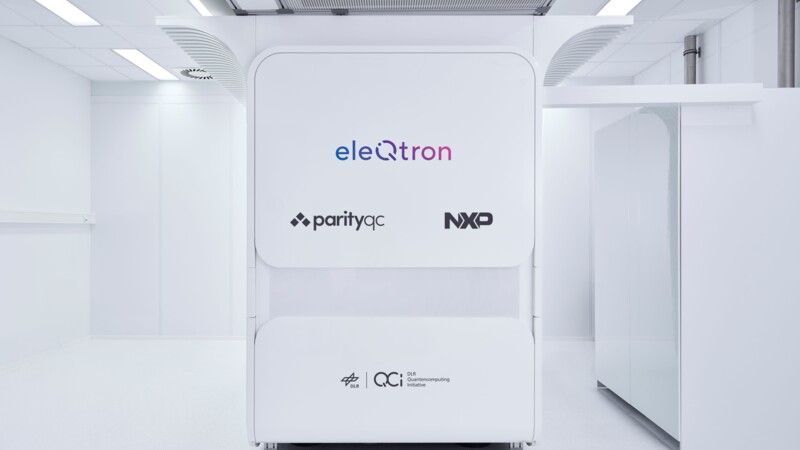"Everyone i.e., science, industry and start-ups have come on board to achieve this goal. Science City Bahrenfeld offers a unique ecosystem for this interdisciplinary research," said Fegebank. Research into quantum computing is internationally appealing and should make it easier to recruit the urgently-needed specialists for this highly complex field as well as the funds. The European Regional Development Fund (ERDF) is investing EUR 7 million while the City of Hamburg has provided another EUR 10 million for the project.
Traffic delayed the arrival of Katharina Fegebank, Senator for Science, Research and Equality Deputy Mayor of Hamburg, for the launch of the "Hamburg Quantum Computing" (HQC) project on Monday (July 1, 2024) at the University of Hamburg's Center for Optical Quantum Technologies (ZOQ). Such a delay might not have occurred, if quantum computers had optimised the flow of traffic. However, supercomputers that quickly calculate solutions to complex problems with many variables are not yet available. Yet, the launch of a new EU-funded joint project has brought this technology a step closer. Combining expertise of the University of Hamburg (UHH) and the Hamburg University of Technology (TUHH), software and hardware solutions for quantum computers will be developed over the next six years in Science City Bahrenfeld.
EUR 17 million for research

Rymax One coming to life

A look into the ZOQ laboratory gives a glimpse of Rymax One, a quantum computer demonstrator based on neutral atoms designed to solve optimization problems, that is under construction there. The atoms are trapped with laser beams and put into different states of excitation to turn neutral atoms into qubits - the quantum equivalent of bits in conventional computers. "We are very proud to have brought Rymax to life," said Dr Niclas Luick, Managing Director of the Rymax project. Now the qubits can work their magic. Qubits can assume the states 0 and 1, but also an infinite number of values in between. Superposition refers to a quantum mechanical state and makes quantum computers extremely powerful. "This enables us to develop tailor-made approaches to highly complex problems in industry and we are working with companies such as Hermes, Otto and HHLA to bring quantum computing from theory to application.”
Germany now second for quantum computing

The potential is enormous, said Luick in reference to the McKinsey Quantum Technology Monitor 2024, which has predicted a value creation of up to USD 2 trillion by 2035 in the chemical, life science, financial and automotive industries. Germany has recognised this potential and the German government is now second only to China in terms of public investment (USD 15.3 billion) with USD 5.2 billion. The German Ministry of Education and Research (BMBF) has also put some EUR 25 million towards Rymax since December 2021 as part of the "Quantum Computer Demonstration Setups" funding scheme. Quantum computing now counts among the key technologies for tackling climate change, sustainable logistics, vaccine development and other challenges. The launch of the "Hamburg Quantum Computing" project should make Hamburg a leading international R&D centre of quantum computing.
ys/kk/pb
Sources and further information
More
Similar articles

Power of quantum computing huge thanks to simultaneous processing

QSea I "Made in Germany" presented in Hamburg

